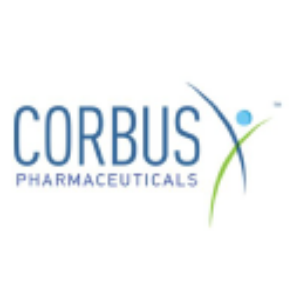Phase 1 Clinical Data for SYS6002 (CRB-701) to be presented at 2024 ASCO GU
NORWOOD, Mass., Jan. 23, 2024 (GLOBE NEWSWIRE) -- Corbus Pharmaceuticals Holdings, Inc. (NASDAQ: CRBP) (“Corbus” or the “Company”), announced today that the abstract for the first-in-human Phase 1 dose escalation study of SYS6002 (CRB-701) has been released, and the corresponding up-to-date data will be presented at the 2024 American Society of Clinical Oncology Genitourinary Cancers Symposium (ASCO GU). The data referred to in the abstract dates to September of 2023; the upcoming presentation will include data as of December 2023. The study is being conducted by Corbus’s partner CSPC Pharmaceutical Group in China. ASCO GU will be held January 25-27, 2024 in San Francisco, CA and online.
The abstract, a Phase 1 Dose-Escalation of SYS6002 (CRB-701), a next-generation Nectin-4 Targeting Antibody Drug Conjugate (ADC) by DingWei Ye, et al will be presented on Jan 26th between 11:30-1pm PST. SYS6002 (CRB-701) is currently being explored in a dose escalation on a Q3W schedule, with a view to reducing free-MMAE concentrations in plasma and thereby reducing the associated toxicities that are known to dose limit enfortumab vedotin (EV). Additionally, by administering SYS6002 (CRB-701) on a Q3W schedule there is an opportunity to increase clinical convenience and patient compliance. The dose escalation that will be presented currently spans 6 dose levels (0.2, 0.6, 1.2, 1.8, 2.7 & 3.6 mg/kg) and makes use of a Bayesian Optimal Interval (BOIN) design with accelerated titration. The trial is evaluating the safety and tolerability of SYS6002 (CRB-701) to determine the Maximum Tolerated Dose (MTD) and/or the Phase II dose in patients with advanced solid tumors who have failed or were intolerant to standard treatment. Patients were enrolled based on nectin-4 staining, with the exception of metastatic urothelial cancer (mUC) urothelial cancer patients, who were considered to be nectin-4 positive. Beyond determining safety and tolerability, the pharmacokinetic (PK) and preliminarily anti-tumor activity of SYS6002 (CRB-701) are reported.
The Poster will include an updated cumulative dataset, based on a data-cut of 18 December 2023, of safety, tolerability, preliminary anti-tumor activity (efficacy), pharmacokinetic (PK), and nectin-4 expression levels from patients with metastatic urothelial cancer (mUC), cervical cancer, triple-negative breast cancer (TNBC), and colorectal cancer (CRC).
Continued development of SYS6002 (CRB-701) as both a monotherapy and in combination is planned both in China (CSPC), U.S. and Europe (Corbus Pharmaceuticals Holdings, Inc.).
About CRB-701
CRB-701 (SYS6002) is a next-generation antibody-drug-conjugate (ADC) targeting nectin-4, that contains a third generation, site-specific, cleavable linker and a homogenous drug antibody ratio of 2, using MMAE as the payload. Nectin-4 is a clinically validated, tumor-associated antigen in urothelial cancer. The Nectin-4 ADC PADCEV® is approved for use in late metastatic urothelial cancer and recently received an expanded label under an accelerated approval from the Food and Drug Administration for use in combination with KEYTRUDA® for patients with locally advanced or metastatic urothelial carcinoma who are ineligible for cisplatin-containing chemotherapy.
About Corbus
Corbus Pharmaceuticals Holdings, Inc. is a precision oncology company with a diversified portfolio and is committed to helping people defeat serious illness by bringing innovative scientific approaches to well understood biological pathways. Corbus’ pipeline includes CRB-701, a next generation antibody drug conjugate that targets the expression of Nectin-4 on cancer cells to release a cytotoxic payload, CRB-601, an anti-integrin monoclonal antibody which blocks the activation of TGFβ expressed on cancer cells, and CRB-913, a highly peripherally restricted CB1 inverse agonist for the treatment of obesity. Corbus is headquartered in Norwood, Massachusetts. For more information on Corbus, visit corbuspharma.com. Connect with us on Twitter, LinkedIn and Facebook.
Forward-Looking Statements
This press release contains certain forward-looking statements within the meaning of Section 27A of the Securities Act of 1933 and Section 21E of the Securities Exchange Act of 1934 and Private Securities Litigation Reform Act, as amended, including those relating to the Company's restructuring, trial results, product development, clinical and regulatory timelines, market opportunity, competitive position, possible or assumed future results of operations, business strategies, potential growth opportunities and other statement that are predictive in nature. These forward-looking statements are based on current expectations, estimates, forecasts and projections about the industry and markets in which we operate and management's current beliefs and assumptions.
These statements may be identified by the use of forward-looking expressions, including, but not limited to, "expect," "anticipate," "intend," "plan," "believe," "estimate," "potential,” "predict," "project," "should," "would" and similar expressions and the negatives of those terms. These statements relate to future events or our financial performance and involve known and unknown risks, uncertainties, and other factors on our operations, clinical development plans and timelines, which may cause actual results, performance or achievements to be materially different from any future results, performance or achievements expressed or implied by the forward-looking statements. Such factors include those set forth in the Company's filings with the Securities and Exchange Commission. Prospective investors are cautioned not to place undue reliance on such forward-looking statements, which speak only as of the date of this press release. The Company undertakes no obligation to publicly update any forward-looking statement, whether as a result of new information, future events or otherwise.
INVESTOR CONTACT:
Sean Moran
Chief Financial Officer
Corbus Pharmaceuticals
smoran@corbuspharma.com
Bruce Mackle
Managing Director
LifeSci Advisors, LLC
bmackle@lifesciadvisors.com










